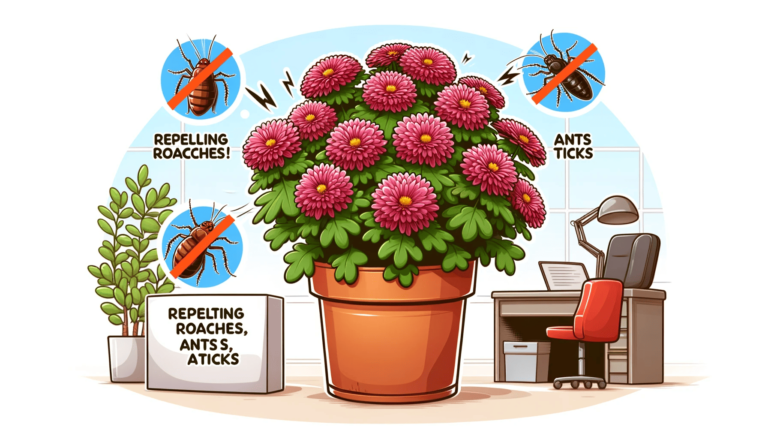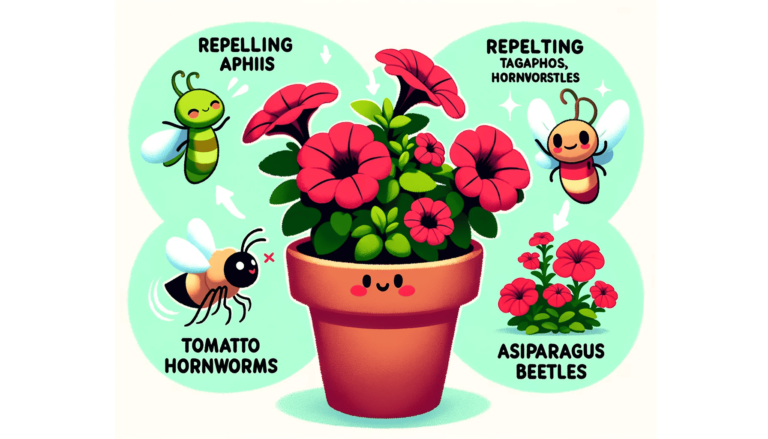How to Kickstart Your Pest Control Business in Georgia
Welcome to Powerful Pest Control! In this article, we will guide you on how to start a pest control business in Georgia. Whether you’re a seasoned entrepreneur or just starting out, we’ll provide you with essential tips and insights to ensure success in this industry. Let’s dive in and transform your passion for pest control into a thriving business venture.
Getting Started: Establishing a Successful Pest Control Business in Georgia
Getting Started: Establishing a Successful Pest Control Business in Georgia
Starting a pest control business in Georgia can be a lucrative venture if done correctly. With the prevalence of pests and the need for professional extermination services, there is a growing demand for reliable pest control companies in the state. Here are some steps to help you establish a successful pest control business in Georgia:
1. Research the industry: Before diving into the pest control business, it’s crucial to understand the industry and market dynamics in Georgia. Familiarize yourself with local regulations, licensing requirements, and competition. Gain knowledge about common pests in the area and the most effective control methods.
2. Obtain necessary licenses and permits: To operate legally, you’ll need to obtain the appropriate licenses and permits. In Georgia, pest control businesses must be licensed by the Georgia Structural Pest Control Commission. Check their website for specific requirements and application procedures.
3. Develop a business plan: A well-structured business plan will guide your operations and help attract potential investors or lenders. Outline your target market, services offered, pricing strategies, marketing plans, and financial projections. Include details about your equipment, staffing needs, and insurance coverage.
4. Purchase quality equipment: Invest in high-quality pest control equipment to ensure effective and efficient services. This includes sprayers, traps, baits, protective gear, and inspection tools. Don’t compromise on equipment quality as it directly impacts customer satisfaction and the accuracy of your treatments.
5. Build a strong brand: Establishing a strong brand presence is crucial for gaining customer trust and standing out from competitors. Design a memorable logo, create a professional website, and develop marketing materials that highlight your expertise and reliability. Utilize online platforms and social media to promote your services.
6. Hire and train qualified staff: Your employees are the face of your business, so it’s important to hire and train qualified staff. Ensure they have the necessary certifications and expertise in pest control techniques. Emphasize excellent customer service, professionalism, and attention to detail during training.
7. Focus on customer satisfaction: Word-of-mouth referrals are vital for any service-based industry. Provide exceptional customer service and prioritize customer satisfaction. Respond promptly to queries and concerns, offer warranties or guarantees on your services, and regularly follow up with customers for feedback.
8. Advertise and market your business: Utilize various marketing strategies to promote your pest control business in Georgia. This can include online advertising, local radio or TV ads, printed materials like flyers and brochures, and attending local home improvement trade shows or community events.
9. Stay updated on industry trends and regulations: The pest control industry is constantly evolving, with new techniques and regulations emerging. Stay informed about the latest trends, advancements in pest control methods, and changes in regulations to ensure you are providing the best possible services to your customers.
By following these steps and continuously improving your business operations, you can establish a successful pest control business in Georgia. Remember, professionalism, quality services, and customer satisfaction are key to long-term success in the industry.
Doing This ONE THING Eliminates 90% of PEST PROBLEMS in the Garden
Pesticide Companies Don’t Want You to Know These Secrets | Complete Guide to Organic Pest Control
FAQs
What are the specific requirements and regulations for starting a pest control business in Georgia?
Starting a pest control business in Georgia requires meeting certain requirements and adhering to specific regulations. Here are the key steps:
1. Obtain proper licensing and certifications: In Georgia, pest control businesses must be licensed by the Georgia Department of Agriculture (GDA). To obtain a license, you will need to complete an application, pay the required fee, and pass both a general standards exam and a category-specific exam for the type of pests you plan to control.
2. Register your business: You must register your pest control business with the Georgia Secretary of State’s office. This includes choosing a business name and applying for the appropriate business entity, such as a sole proprietorship, partnership, or limited liability company (LLC).
3. Insurance and bonding: It is crucial to obtain liability insurance to protect your business from potential damages and liabilities. Additionally, some customers may require proof of insurance before hiring your services. Bonding may also be necessary to ensure financial protection for your clients.
4. Comply with pesticide regulations: Pest control businesses must follow the regulations set by the Environmental Protection Agency (EPA) regarding the use, storage, and disposal of pesticides. You need to obtain a pesticide applicator license from the GDA, which includes passing an exam based on your chosen category of pest control.
5. Training and continuing education: To stay updated on the latest pest control techniques and safety practices, it is essential to participate in regular training and continuing education programs. The GDA offers various training courses and workshops that can help you enhance your skills and knowledge.
6. Follow advertising guidelines: When promoting your pest control services, ensure compliance with advertising guidelines set by the GDA. Avoid making false claims or misleading statements about the effectiveness of your treatments.
7. Keep records: Maintain accurate records of your business operations, including pesticide usage, client contracts, invoices, and service history. This documentation will be essential for recordkeeping, tax purposes, and potential legal requirements.
Note: The requirements and regulations mentioned above are some general guidelines for starting a pest control business in Georgia. It is crucial to consult with the Georgia Department of Agriculture and other relevant authorities to ensure compliance with all applicable laws and regulations.
How can I obtain the necessary certifications and licenses to operate a pest control business in Georgia?
To operate a pest control business in Georgia, you will need to obtain the necessary certifications and licenses. Here are the steps you can follow:
1. **Training:** First, you should complete a training program in pest control from a certified institution. This training will provide you with the necessary knowledge and skills to effectively handle various pests.
2. **Examination:** After completing the training, you will need to pass an examination administered by the Georgia Department of Agriculture (GDA). This exam ensures that you have a comprehensive understanding of pest identification, pest control techniques, safety protocols, and applicable laws and regulations.
3. **Insurance:** Obtain liability insurance for your pest control business. Insurance coverage is essential to protect yourself and your clients from any potential damages or liabilities that may arise during pest control operations.
4. **License application:** Once you have completed the training and passed the examination, you can submit your license application to the GDA. The application process may require you to provide details such as your personal information, proof of training, insurance coverage, and any relevant experience.
5. **Background check:** As part of the licensing process, you may be required to undergo a background check. This is done to ensure that you have no criminal history that would disqualify you from operating a pest control business.
6. **Fees:** Pay the necessary fees associated with obtaining a pest control license. The fee structure may vary, so it is advisable to check the GDA website or contact them directly for the most accurate information.
7. **Renewal and Continuing Education:** Keep in mind that pest control licenses are typically valid for a specific period, often one year. Therefore, you will need to renew your license periodically. Additionally, you may be required to complete continuing education credits to maintain your license, ensuring that you stay updated with the latest industry practices and regulations.
It is important to note that the specific requirements and processes may vary, so it is advisable to visit the official website of the Georgia Department of Agriculture or contact them directly for detailed and up-to-date information on obtaining pest control licenses in Georgia.
What steps should I take to market and promote my pest control business effectively in Georgia?
To effectively market and promote your pest control business in Georgia, there are several steps you should take:
1. Build an online presence: Create a professional website that highlights your services, expertise, and contact information. Optimize your website for local search by including relevant keywords such as “pest control in Georgia” or “Georgia extermination services”.
2. Utilize search engine optimization (SEO): Implement SEO strategies to improve your website’s ranking in search engine results. This can include optimizing meta tags, creating quality content, acquiring backlinks from reputable sources, and ensuring your website is mobile-friendly.
3. Create informative and engaging content: Produce blog posts, videos, infographics, or downloadable resources that provide valuable information about pests, prevention tips, and highlighting the benefits of using professional pest control services. Share this content on your website, social media platforms, and through email newsletters.
4. Leverage social media: Establish a presence on popular social media platforms such as Facebook, Twitter, and Instagram. Share educational content, before-and-after photos, customer testimonials, and promotions to engage with your audience and generate leads.
5. Local networking: Connect with local businesses, homeowners associations, property management companies, and real estate agents. Offer referral incentives or form strategic partnerships to expand your reach and gain more clients.
6. Online advertising: Consider investing in online advertising platforms such as Google AdWords or Facebook Ads. Target relevant keywords and demographics to increase visibility and attract potential customers.
7. Online reviews and ratings: Encourage satisfied customers to leave positive reviews on platforms like Google My Business, Yelp, or Angie’s List. Respond promptly to any negative reviews to address concerns and demonstrate your commitment to customer satisfaction.
8. Direct mail campaigns: Send promotional materials, such as postcards or brochures, to targeted areas within your service area. Highlight any special offers, discounts, or unique services to entice potential customers.
9. Vehicle branding: Advertise your business by prominently displaying your logo, contact information, and services on your vehicles. This serves as mobile advertising while your technicians are on the road or servicing clients.
10. Participate in local events: Sponsor or participate in local community events, home expos, or trade shows. This allows you to interact with potential customers face-to-face, build brand awareness, and establish trust.
Remember, consistency and persistence are key when it comes to marketing and promoting your pest control business effectively in Georgia. Evaluate the effectiveness of different strategies and adjust accordingly to maximize your reach and attract new customers.
In conclusion, starting a pest control business in Georgia can be a lucrative venture if approached strategically.
By conducting thorough market research, obtaining the necessary licenses and certifications, and investing in effective marketing strategies, prospective entrepreneurs can establish a strong foundation for their business.
Additionally, forming partnerships with suppliers, staying updated on the latest pest control technologies, and prioritizing exceptional customer service are crucial elements for long-term success in this industry.
While challenges may arise, perseverance and a commitment to continuous learning will undoubtedly contribute to the growth and profitability of your pest control business in Georgia.
So, seize the opportunity and embark on this exciting journey to contribute to the well-being and comfort of customers, while also making a positive impact on the environment. Good luck!



